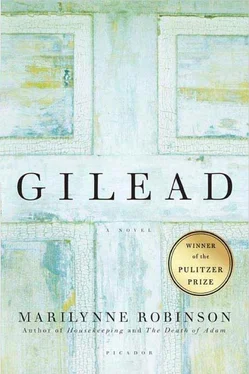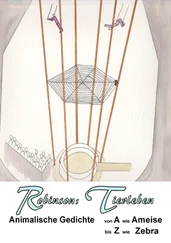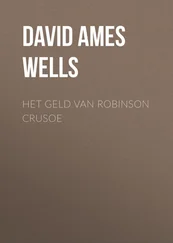We agreed it must have been fairly widely read in both our congregations, because on one page there’s a recipe for that molded salad of orange gelatin with stuffed green olives and shredded cabbage and anchovies that has dogged my ministerial life these last years, and which appears at his house whenever he so much as catches cold. There should be a law to prevent recipes for molded salad from appearing within twenty pages of any article having to do with religion. I ended up bringing the magazine back home because I thought I might want to use it in a sermon.
There are two insidious notions, from the point of view of Christianity in the modern world. (No doubt there are more than two, but the others will have to wait.) One is that religion and religious experience are illusions of some sort (Feuerbach, Freud, etc.), and the other is that religion itself is real, but your belief that you participate in it is an illusion. I think the second of these is the more insidious, because it is religious experience above all that authenticates religion, for the purposes of the individual believer.
But people of any degree of religious sensitivity are always vulnerable to the accusation that their consciousness or their understanding does not attain to the highest standards of the faith, because that is always true of everyone. St. Paul is eloquent on this subject. But if the awkwardness and falseness and failure of religion are interpreted to mean there is no core of truth in it — and the witness of Scripture from end to end discourages this view — then people are disabled from trusting their thoughts, their expressions of belief, and their understanding, and even from believing in the essential dignity of their and their neighbors’ endlessly flawed experience of belief. It seems to me there is less meanness in atheism, by a good measure. It seems that the spirit of religious self-righteousness this article deplores is precisely the spirit in which it is written. Of course he’s right about many things, one of them being the destructive potency of religious self-righteousness.
Here is a sentence Boughton and I got a laugh out of: “One might ask how many Christians can define Christianity.” In twenty-five volumes or less, I said.
Boughton said, “Fewer,” and winked at Glory, and she said, “Ever the stickler,” which is true.
(Of course I was simply using contemporary idiom, and he was aware of that. He just doesn’t approve of it. I don’t use it often. But I think it’s perfectly fine for making a little joke now and then.)
Here is a paragraph we lingered over: “There is indeed a note of sinful pride in the confidence with which the majority of people expressed their ideas about heaven. For although the Bible has much to say about final judgment, it offers no definitive picture of life after death. Yet fewer than one third of the American people—29 percent — admit they have no ideas on what is one of the most ambiguous subjects in Biblical revelation.” Now, that is a kind of interpretation I would call fraudulent.
To say a subject is ambiguous is not to say one cannot form ideas on it, or shouldn’t, nor is it to say even that it is possible to avoid forming ideas on it. Any concept that exists in the mind at all exists in some form, among some set of associations. I’d like to talk to that 29 percent who have no ideas, to see how they do it. I bet they just didn’t like the question. Boughton says he has more ideas about heaven every day.
He said, “Mainly I just think about the splendors of the world and multiply by two. I’d multiply by ten or twelve if I had the energy. But two is much more than sufficient for my purposes.” So he’s just sitting there multiplying the feel of the wind by two, multiplying the smell of the grass by two. “I remember when we put that old wagon on the courthouse roof,” he said. “Seems to me the stars were brighter in those days. Twice as bright.”
“And we were twice as clever.”
“Oh, more than that,” he said. “Much more than that.”
Jack came out and sat down with us. He asked if he could look at the article, and I gave it to him. He said, “I thought he made the point in here somewhere that Americans’ treatment of the Negro indicated a lack of religious seriousness.” Boughton said, “It is very easy to judge.”
Jack smiled and handed the magazine back to me. “True,” he said.
That was the first I’d seen of him since Sunday, since the service. He went out through the chancel and the side door, to avoid shaking hands with me, I believe. I’ve been feeling some discomfort on that account as well as others. I was even a little embarrassed to meet his eyes, to tell the truth. I believe returning the magazine was mainly a pretext for looking in on Boughton and Glory, to see if they were upset with me. I wasn’t done with that article. I meant all along to bring it back with me. I conceal my motives from myself pretty effectively sometimes. I had even imagined, lying awake Sunday night, that Jack might go away again because I had brought up the old catastrophe right there in church, or so he seemed to believe. I thought of apologizing, but that would only confirm in his mind that my meaning and my intention were what he took them to be, which I do not wholly believe, and which would deprive him of the possibility of making a less damaging interpretation of them. At any rate, it would raise the issue between us, perhaps unnecessarily. Finally, I was hesitant to go to the house at all, fearing that my mere presence might be an irritant or a provocation, as I feared my staying away might be also. Then Glory came by to say hello. She seemed in fine spirits. And I was mightily relieved. If there is one thing I don’t want to do in the time that remains to either one of us, it is offend Boughton. I fell to thinking what a pleasure it must be to him to have Jack there, and it occurred to me that it might be a remarkable generosity on Jack’s part to come home to the poor old man, and perhaps to Glory also, considering; her troubles. I was downright ashamed to remember how impatient I was for him to leave, thinking only of my own life, I admit. The thought had even occurred to me that he might be there to start moving his father out of the house, so to speak, since he and the other children will inherit it. The place really did need to be put right, and there was much more to do than Glory could have done alone. Sitting there on the porch with Jack, I was struck by how much he had aged. Of course he’s old enough to have aged, he’s in his forties somewhere. Angeline would be fifty-one, so he’s forty-three. There is gray in his hair, and he looks tired around the eyes. Well, he looked tense, as he always does, and he also looked sad, it seemed to me.
Your mother came up the road to tell us our supper was ready. It was a cold supper, she said, so there was no hurry. She agreed to sit with us for a few minutes. She always has to be coaxed to stay in company even a little while, and then it’s all I can do to get a word from her. I believe she worries about the way she talks. I love the way she talks, or the way she talked when I first knew her. “It don’t matter,” she would say, in that low, soft voice of hers. That was what she said when she meant she forgave someone, but it had a sound of deeper, sadder resignation, as if she were forgiving the whole of the created order, forgiving the Lord Himself. It grieves me that I may never hear just those words spoken by her again. I believe Boughton made her self-conscious with that little trick of his of correcting people. Not that he ever corrected her.
“It don’t matter.” It was as if she were renouncing the world itself just in order to make nothing of some offense to her. Such a prodigal renunciation, that empty-handed prodigality I remember from the old days. I have nothing to give you, take and eat. Ashy biscuit, summer rain, her hair falling wet around her face. If I were to multiply the splendors of the world by two — the splendors as I feel them — I would arrive at an idea of heaven very unlike anything you see in the old paintings.
Читать дальше












